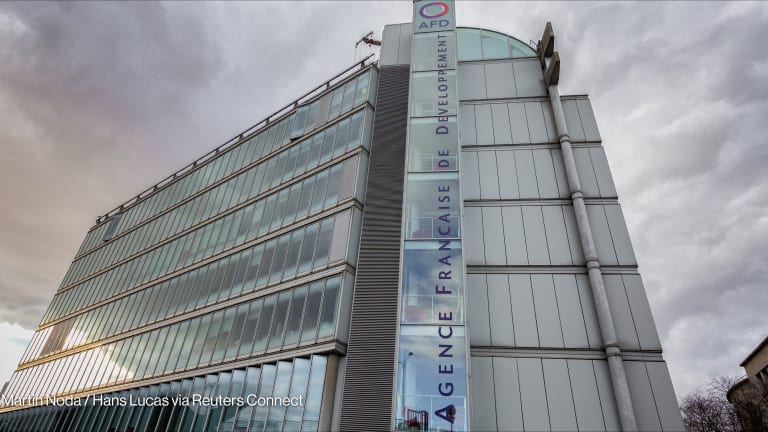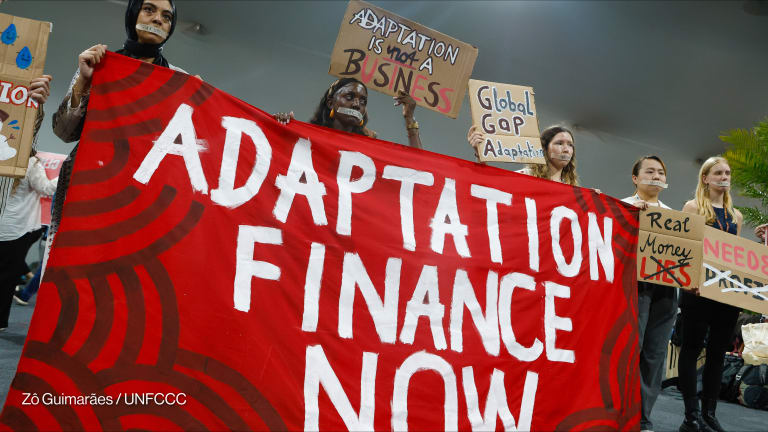Proparco puts extra €1B into Macron's plan for African entrepreneurs

BRUSSELS — France’s private sector development arm, Proparco, announced €1 billion ($1.2 billion) to support African entrepreneurs this week, expanding the Choose Africa initiative launched by President Emmanuel Macron three years ago.
The money, partly backed by guarantees from the French government and the European Commission, is part of the $4 billion that the Association of European Development Finance Institutions — of which Proparco is a member — announced at last month’s “Finance in Common Summit.”
And it takes the Choose Africa initiative, which Macron pitched as France’s contribution to a “revolution” in innovation and entrepreneurship on the continent, to €3.5 billion for 2018-2022. Some €2 billion of that has already been committed, which Proparco says has helped tens of thousands of entrepreneurs through better access to credit or strengthened capital base.
Development banks put on strained show of unity on climate, SDGs
A new "movement" of public development banks could be afoot, starting with the "Finance in Common Summit." But common rules are still elusive.
The increase was secured partly thanks to a €103 million guarantee from the fledgling European Fund for Sustainable Development, which aims to encourage mostly European development actors into riskier projects by allocating European Union taxpayers’ money to cover part of the loss, should the loans fail. According to the commission, small and medium-sized enterprises represent almost 90% of businesses in Africa and create about 80% of employment.
“What we are seeing today is a strong degradation in the macroeconomic situation in the countries where our clients operate,” Proparco CEO Grégory Clemente told Devex in an interview last week. “So we need guarantee mechanisms in order to keep accompanying these businesses, which before this serious crisis were in good health, were well managed, etc.”
Amid the COVID-19 pandemic, Clemente said Proparco has also offered many clients, particularly in the tourism and transport sectors, more time to repay loans to give them “oxygen at the time when they need it most.”
With a mixture of public and private shareholders, Proparco is sometimes criticized by civil society as embodying an overly business-driven approach to development.
“Typically, Proparco can’t manage an SME that needs €20,000,” Clemente said, responding to that critique. “On the other hand, Proparco can lend to a bank or microfinance institution which is able to lend them the €20,000.”
Auditor says EU's guarantee experiment still just 'hopes and expectations'
The bloc's oversight body says it is currently impossible to draw conclusions about the success of its foray into de-risking — even as it plans to pump billions more into the scheme.
“Behind these investments is the search for impact: impact on development, job creation and access to banking. … Why is the informal sector so important? Because the banked rate [in Africa] is, in the end, very weak. So we need to find the right organization — and Choose Africa helps us enormously because we enjoy a very strong political support — which allows us to send all economic actors towards the right entry points to get access to finance.”
Clemente added that the volume of Proparco’s commitments grew from roughly €1 billion in 2015-2016 to €2.5 billion in 2019.
“We more than doubled our size in a few years. Why? Because we were given the means with real political support from the French government. Then, we were given the means inside the French Development Agency. And I think the French Development Agency clearly saw that encouraging and giving the means to its subsidiary dedicated to financing the private sector was having an impact on populations and complemented its own mandate of supporting the public sector and public policies in the different countries where it works.”
Search for articles
Most Read
- 1
- 2
- 3
- 4
- 5








